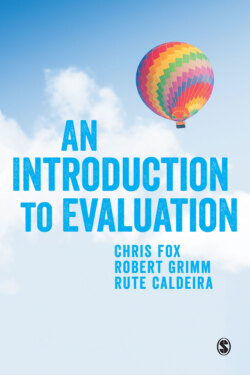Читать книгу An Introduction to Evaluation - Chris Fox - Страница 49
На сайте Литреса книга снята с продажи.
Confidentiality and anonymity
ОглавлениеParticipants in an evaluation should usually be guaranteed confidentiality. This means that, regardless of the information they provide, they will not be identified as the source. Additionally no statements or other type of information that may identify participants should be shared with others or publicly displayed by the evaluator. It is important to note and to make it absolutely clear to participants that statements and information provided confidentially and on condition of anonymity can nevertheless appear in the evaluators’ documents and reports with the proviso that these do not directly identify the source.
Traditionally confidentiality is afforded through anonymisation. This is often relatively easy to achieve in quantitative studies involving large numbers, but much harder to achieve in qualitative studies or studies involving small numbers of participants. For example, when an evaluator is evaluating a relatively small programme that involves a small number of stakeholders the evaluators must know that participants can be easily identified via their quotes. Hence the use of interviews as a method should be reconsidered.
The right to confidentiality is not absolute. For example, in the case of children and depending on the jurisdiction in which the evaluation takes place there may be a requirement to disclose information about a child at risk of harm that overrides any offer of confidentiality.
